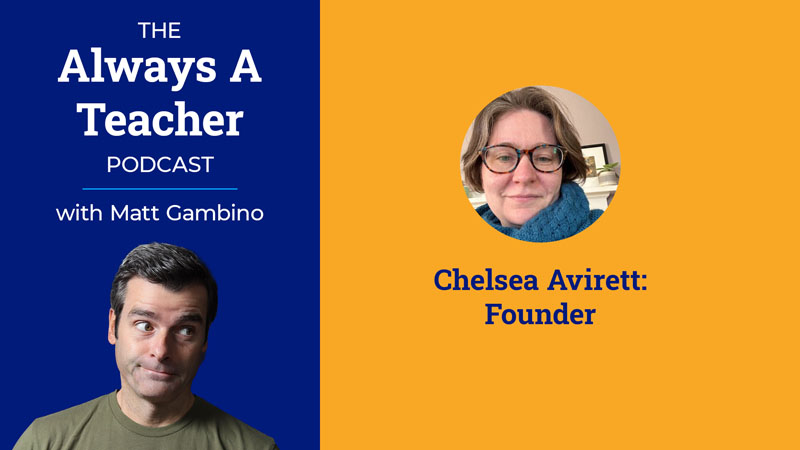
Show Notes
Chelsea Avirett has one of the most unique paths to edtech: she's a former 7th-grade teacher and a trained medievalist. After seeing the job market for her academic field collapse, she eventually found her way into the edtech space. Now, she's the founder of Skip, a job board specifically designed for educators, edtech professionals, and those in "ed-adjacent" industries. She shares her frontline insights on the *real* state of the hiring market, why teachers struggle to land jobs (and how to fix it), and the networking strategies that actually work.
- What is Skip?: Chelsea explains her job board, which she started because "edtech" isn't a searchable industry on LinkedIn. She sources jobs that pay well and match educator skills.
- The "Anything But Sales" Problem: Why do 40% of her subscribers want curriculum jobs but avoid sales? She reframes sales as a "consultative model" that's perfect for educators.
- From Medievalist to EdTech: Chelsea shares her fascinating (and difficult) journey from teaching middle school to becoming a medievalist academic, only to find the job market had completely collapsed.
- The Resume "Stigma": Why do companies seem hesitant to hire teachers? She argues it's often because teacher resumes are too generic and recruiters are "burnt out" from flooded inboxes.
- How to Get Hired (and Avoid Scams): Chelsea provides a 3-6 month timeline for the job search and a strategy for vetting transition coaches, including a warning about a specific LinkedIn scam targeting teachers.
Episode Article
The "edtech industry" isn't a neat category you can search for on LinkedIn. Chelsea Avirett, a former 7th-grade teacher, found this out the hard way. Her solution? She built the platform she wished she had: Skip, a job board that curates high-quality, good-paying jobs for educators, edtech professionals, and those in "ed-adjacent" fields like Learning & Development.
Chelsea's own path was unconventional. After teaching middle school, she pursued her passion for academic research and became a trained medievalist. But when the 2008 financial crisis hit, the job market for her highly specialized field evaporated. This experience gave her a deep empathy for professionals facing a career upheaval, a feeling many educators are experiencing today.
From her unique vantage point running Skip, Chelsea sees the trends clearly. About 40% of her subscribers are current educators, while the other 60% come from edtech, higher-ed admin, and corporate Learning & Development. She also sees a major disconnect: most teachers want curriculum or instructional design roles and actively avoid "anything except sales and marketing." She pushes back on this, noting that most edtech sales roles aren't pushy—they're "consultative," focusing on helping schools solve problems, which is exactly what teachers are trained to do.
Her advice for teachers is built on a foundation of realism. First, she warns that the hiring market has changed and to set a "3-6 month timeline" for the job search. Second, she urges teachers to conduct a "skills inventory." Many teachers, she finds, have "imposter syndrome" and don't realize that skills they consider basic, like facilitating a meeting, are highly valued in the corporate world.
This lack of awareness leads to generic resumes that "don't actually showcase" leadership or high-level curriculum work. As a result, she says, recruiters get "burnt out" by the flood of applicants, creating a stigma where companies prefer to hire teachers who *already* have two years of edtech experience. Chelsea's solution is for teachers to first get clarity on their skills, then build a resume that shows *how they helped*—using metrics and accomplishments—to prove they are ready for the transition.
